Is WhatsApp Automation the Future of the Automotive Industry?
Case Studies Conversational Leadership
Apurva Sharma
Published on 10 Mar 2023 11 min Read
11 min Read
Highlights
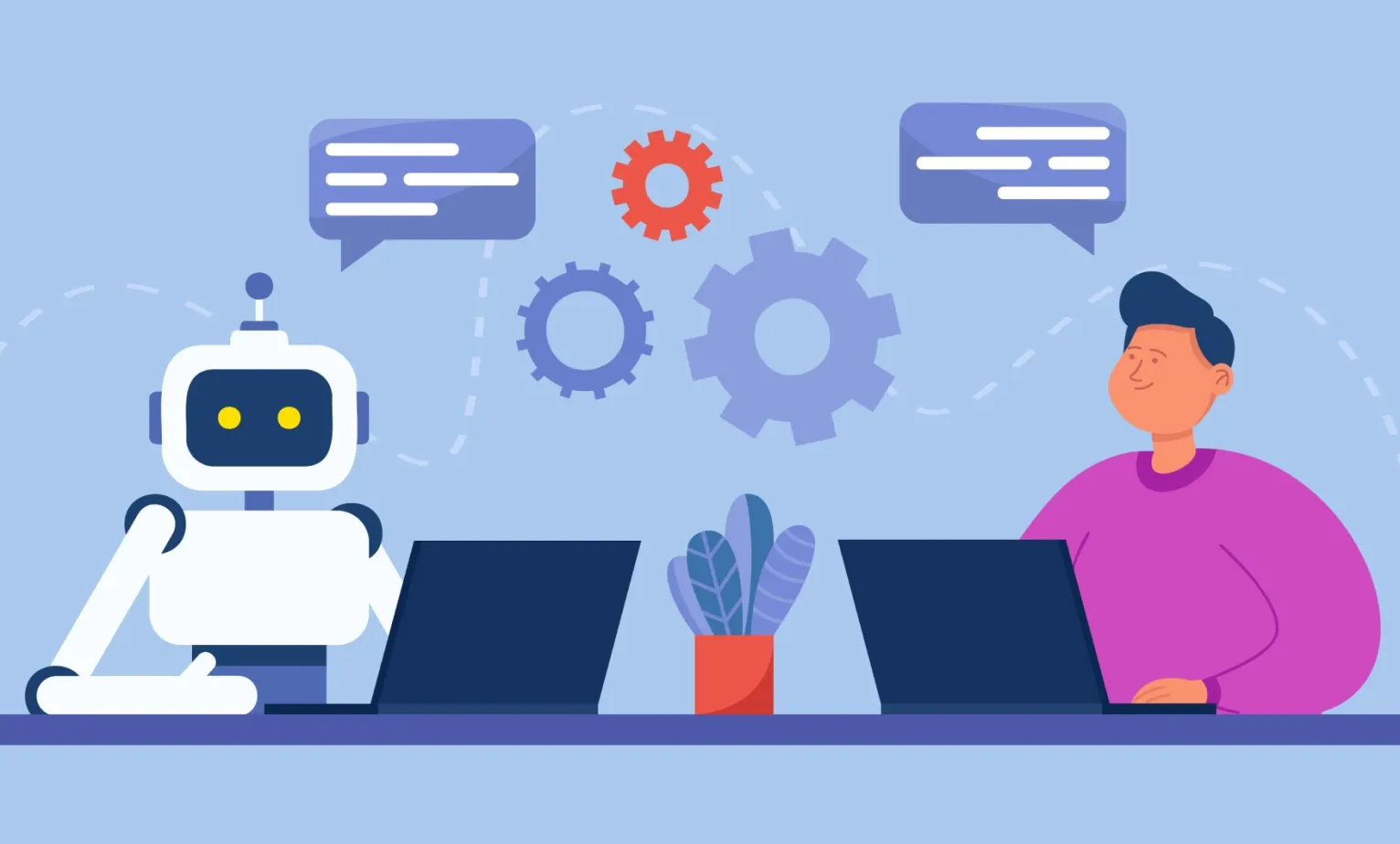
In recent years, automation has been a buzzword across different industries, and the automotive industry is no exception. While the use of automated technologies is not new in the automotive industry, the use of WhatsApp automation can potentially revolutionize the industry. In this blog post, we’ll explore how WhatsApp automation is changing the automotive industry and its future implications.
WhatsApp as a messaging platform has skyrocketed in the past few years, with over 2 billion active users globally. This widespread usage of WhatsApp has led to the integration of automation technology to enhance customer service, boost sales, and improve operational efficiency in the automotive industry. WhatsApp automation is a type of technology that automates repetitive tasks that require human input, such as sending messages, providing customer support, and processing orders.
How automation can benefit the automotive industry?
One of the most significant advantages of using WhatsApp automation in the automotive industry is its ability to enhance customer service. With the help of chatbots, dealerships can provide 24/7 support to their customers, answer queries instantly, and guide customers through the car buying process. This not only improves customer satisfaction but also reduces the workload on customer service teams.
WhatsApp automation also has the potential to boost sales in the automotive industry. Dealerships can send automated messages to potential customers, informing them of new car models, special offers, and financing options. Automated follow-up messages can also be sent to prospects, keeping them engaged and increasing the chances of converting them into customers.
In addition to improving customer service and boosting sales, WhatsApp automation can also improve operational efficiency. Dealerships can use WhatsApp automation to automate routine tasks such as order processing, inventory management, and appointment scheduling. This not only reduces errors but also saves time and resources, allowing dealerships to focus on more critical tasks.
Use cases of WhatsApp automation for the Automotive Industry
There are several use cases of WhatsApp automation for the automotive industry. Here are some of the most common ones:
- Customer service: WhatsApp automation can be used to provide 24/7 customer service to car buyers. Automated chatbots can answer common customer queries, such as vehicle specifications, financing options, and warranty information, freeing up customer service representatives to focus on more complex issues.
- Sales and marketing: WhatsApp automation can be used to reach out to potential car buyers with targeted marketing messages, special offers, and promotions. They can create personalized messages for each customer segment, providing discounts and other incentives to encourage purchases. This can increase brand awareness and drive more sales for automotive businesses.
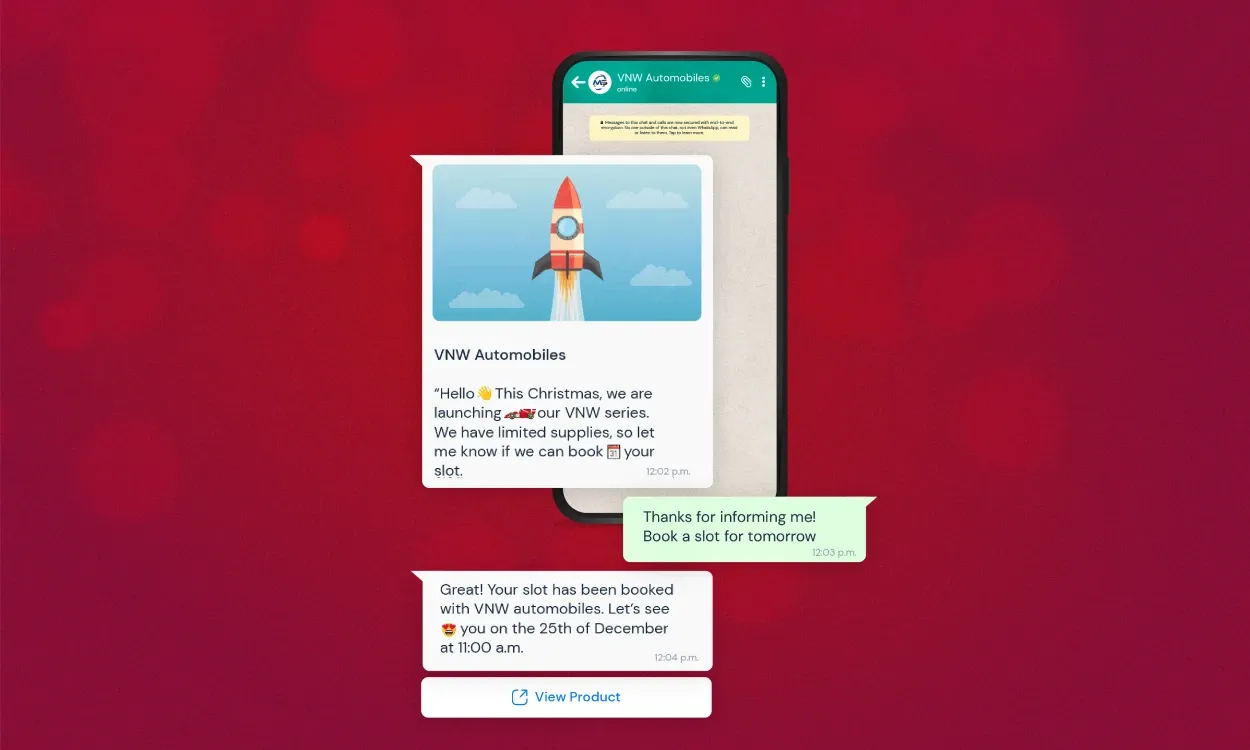
- Generate leads with messages: Companies can use WhatsApp to generate leads by collecting customer information and preferences through the chatbot. They can use this information to create targeted marketing campaigns and improve their sales funnel. Companies can use WhatsApp to announce new product launches and invite customers to exclusive events. They can create excitement around the launch by sharing teasers and behind-the-scenes footage.
- Appointment scheduling: Scheduling appointments in the automotive industry through WhatsApp is becoming increasingly popular as it provides a fast and convenient way for customers to book appointments without the need to visit a dealership or make a phone call. WhatsApp automation can be used to automate appointment scheduling for test drives and service appointments. This can reduce the workload on staff and ensure that customers receive timely and efficient service.
- Book rides: Automated WhatsApp chatbots can help customers schedule appointments with ease, and without the need to wait for a response. Through personalized chats, customers can specify their preferred date and time for their appointment, as well as other details such as the type of car they would like to test drive and the estimated duration of the test drive. This not only saves customers time but also streamlines appointment booking processes for the automotive industry.
- Order processing: WhatsApp automation can be used to automate order processing for car sales, making it easy for customers to complete their purchases online. This can save time and effort for customers and streamline the sales process for automotive businesses. Companies can use WhatsApp to send service reminders to customers, based on their vehicle’s maintenance schedule. Customers can book a service appointment through the chatbot, and receive confirmation and reminders.
- Feedback collection: WhatsApp automation can be used to collect feedback from customers about their car buying experience. This can provide valuable insights for automotive businesses and help them improve their products and services.

- Inventory management: WhatsApp automation can be used to automate inventory management, providing real-time updates on stock availability and pricing. This can help automotive businesses optimize their inventory levels and make informed decisions about purchasing and sales.
- After-sales support: WhatsApp automation can be used to provide after-sales support to customers, such as reminders for service appointments and follow-up messages after repairs. This can help build customer loyalty and increase the likelihood of repeat business. Customers can use WhatsApp to submit warranty claims for their vehicles. They can upload images and videos of the issue and receive updates on the status of their claim.
Examples of Automotive Companies using WhatsApp Automation
There are several automotive companies that have started using WhatsApp automation to improve their customer engagement and streamline their business processes. Here are some examples:
- BMW: BMW India has launched a WhatsApp-based chatbot to provide 24/7 customer support to its customers. The chatbot can answer common customer queries, provide product information, and schedule test drives and service appointments.
- Toyota: Toyota Brazil has launched a WhatsApp-based chatbot to provide personalized support to its customers. The chatbot can answer customer queries about vehicle models, financing options, and service schedules, as well as provide recommendations based on customer preferences.
- Ford: Ford Brazil has launched a WhatsApp-based chatbot to provide real-time support to its customers. The chatbot can provide product information, answer common customer queries, and schedule test drives and service appointments.
- Volkswagen: Volkswagen Argentina has launched a WhatsApp-based chatbot to provide customer support in Spanish. The chatbot can answer customer queries about vehicle models, financing options, and service schedules, as well as provide personalized recommendations based on customer preferences.
- Mercedes-Benz: Mercedes-Benz India has launched a WhatsApp-based chatbot to provide personalized support to its customers. The chatbot can answer customer queries about vehicle models, financing options, and service schedules, as well as provide recommendations based on customer preferences.
These automotive companies are leveraging WhatsApp automation to provide efficient and personalized support to their customers, which can lead to increased customer satisfaction and loyalty. By automating common tasks and queries, they are also able to free up their staff to focus on more complex issues, improving overall operational efficiency.
Automate communication with No-Code Chatbots
The automotive industry is constantly evolving, and with the advent of new technologies, businesses need to keep up with the trends to stay ahead of the competition. One of the latest trends in the automotive industry is the use of no-code chatbots.
Improved customer engagement
No-code chatbots provide an excellent opportunity for automotive businesses to engage with their customers effectively. They can offer customers a personalized experience by answering questions and providing guidance throughout the car buying process. Chatbots can also handle customer queries 24/7, ensuring that customers get the support they need at all times.
Cost-effective solution
Developing a chatbot from scratch requires significant investment in terms of both time and resources. No-code chatbots, on the other hand, offer a more cost-effective solution. With no coding required, businesses can create and deploy chatbots quickly and at a lower cost, reducing the burden on their budget.
Streamlined processes
No-code chatbots can automate repetitive tasks, such as responding to customer queries and scheduling appointments, freeing up staff to focus on more critical tasks. This leads to streamlined processes and improved operational efficiency, which can ultimately lead to increased revenue for the business.
Enhanced customer experience
No-code chatbots can provide a seamless experience for customers, offering them instant answers to their queries and guiding them through the car-buying process. This improves the overall customer experience and can lead to increased customer satisfaction and loyalty.
Challenges in using no-code chatbots
Despite the advantages, there are some challenges to using no-code chatbots in the automotive industry. One of the significant challenges is ensuring that the chatbots are programmed to handle complex queries and situations effectively. Additionally, businesses need to ensure that the chatbots are regularly updated to keep up with changing trends and customer preferences.
Ease of use
No-code chatbots is designed to be easy to use, even for those without any technical knowledge or programming skills. This makes it easier for automotive companies to create and manage their chatbots without needing to hire specialized developers. No-code chatbots are highly scalable, allowing automotive companies to easily add new features and capabilities as their business grows. With no-code chatbots, automotive companies can quickly create and deploy chatbots, reducing the time to market their products and services.
Build your No-Code Chatbot in a few simple steps
Building a no-code chatbot for the automotive industry can be easily achieved with the help of various chatbot-building platforms available today. Here is a step-by-step guide to building a no-code chatbot for the automotive industry:
- Define the use case: Identify the purpose of your chatbot, such as customer service, sales, appointment scheduling, or inventory management.
- Choose a chatbot-building platform: There are several no-code chatbot-building platforms available today, such as WhatCX, Tars, and Landbot. Choose a platform that fits your requirements and budget.
- Design the conversation flow: Create a conversational flowchart for your chatbot that outlines the different scenarios and responses. Use the platform’s visual editor to create a chatbot that is intuitive and user-friendly.
- Train the chatbot: Use the platform’s natural language processing (NLP) tools to train the chatbot to recognize and respond to user queries. Include a range of possible user inputs to ensure that the chatbot can handle different scenarios.
- Test the chatbot: Test the chatbot thoroughly to ensure that it works as expected. Use the platform’s testing tools to simulate user interactions and identify any issues that need to be fixed.
- Launch the chatbot: Once the chatbot is tested and ready, launch it on your preferred messaging platform, such as WhatsApp. Make sure to promote the chatbot to your customers to encourage usage.
- Monitor and optimize: Monitor the chatbot’s performance using the platform’s analytics tools. Use this data to optimize the chatbot’s performance, refine the conversation flow, and improve user engagement.
WhatCX is the right platform to build your no-code chatbot easily and test it at the same time. Build your user journeys and make them engaging for your customers.
Automate communication in the Automotive Industry with WhatCX today!
The future implications of WhatsApp automation in the automotive industry are significant. As more customers prefer messaging platforms for communication, WhatsApp automation will likely become an essential tool for dealerships to engage with their customers. With the help of chatbots and automated processes, dealerships can provide faster and more efficient service, which will increase customer loyalty and retention.
WhatsApp automation is the future of the automotive industry. Its ability to enhance customer service, boost sales, and improve operational efficiency make it a game-changer for the industry. As technology continues to evolve, dealerships that embrace WhatsApp automation are likely to gain a competitive advantage over those that do not.
WhatCX is a powerful tool for automating communication in the automotive industry. With WhatCX, automotive companies can leverage the capabilities of WhatsApp automation to streamline their communication processes and provide efficient and personalized customer service. WhatCX enables automotive companies to leverage the platform’s capabilities to provide efficient and personalized customer service. WhatCX’s features, such as appointment scheduling, order tracking, and customer support, allow automotive companies to streamline their communication processes and improve the overall customer experience.
Furthermore, WhatCX’s no-code chatbot-building platform makes it easy for automotive companies to create and manage their chatbots without the need for extensive technical expertise or resources. By using WhatCX, automotive companies can improve their operational efficiency, reduce costs, and increase customer satisfaction and loyalty.
Sign up with WhatCX to get your customer and team communication automated now!
Make your WhatsApp conversations faster, automatic, and more effective with your team.
Recent Blogs
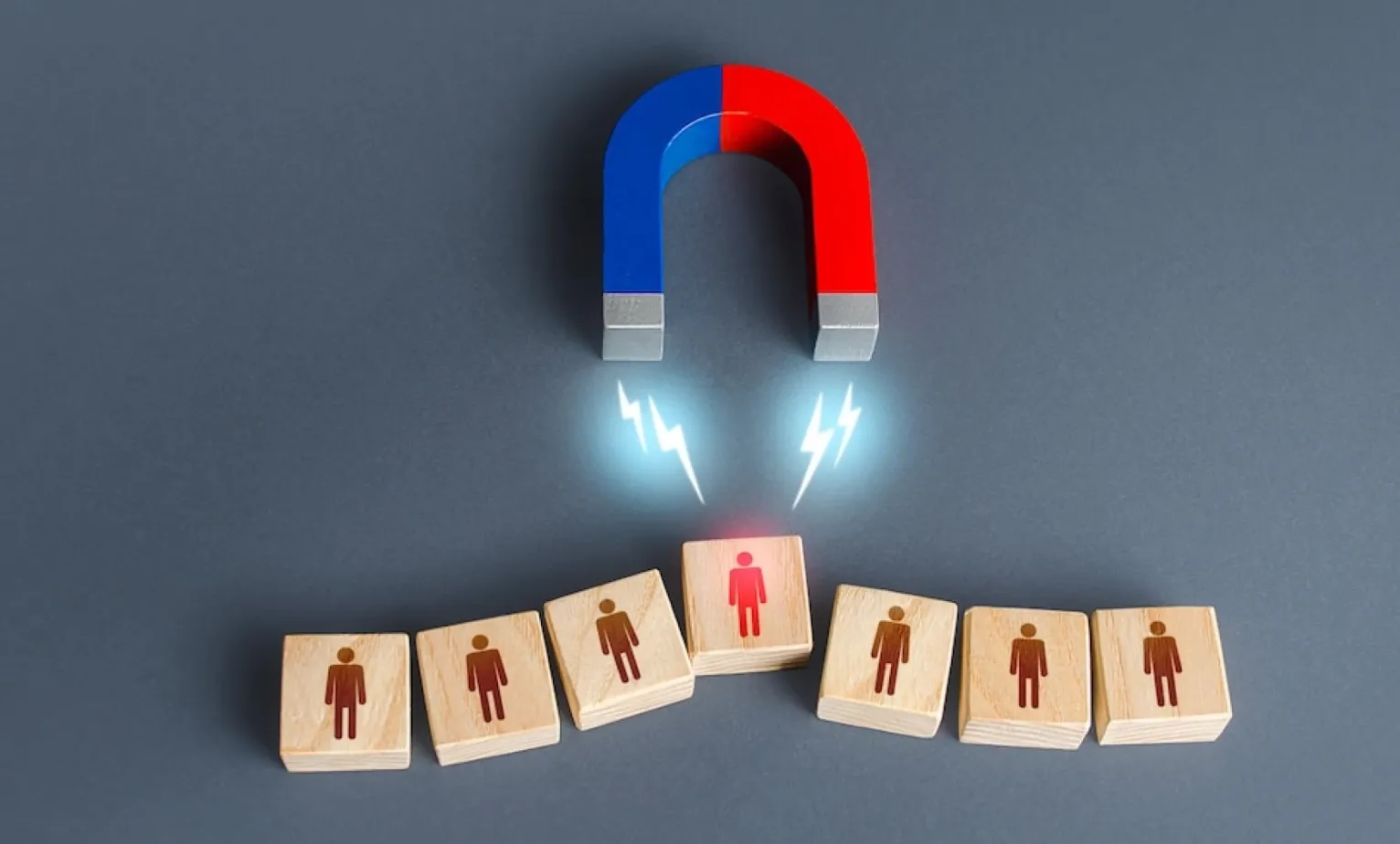
30-03-2023
How to Create an Effective Lead Generation Campaign on WhatsApp
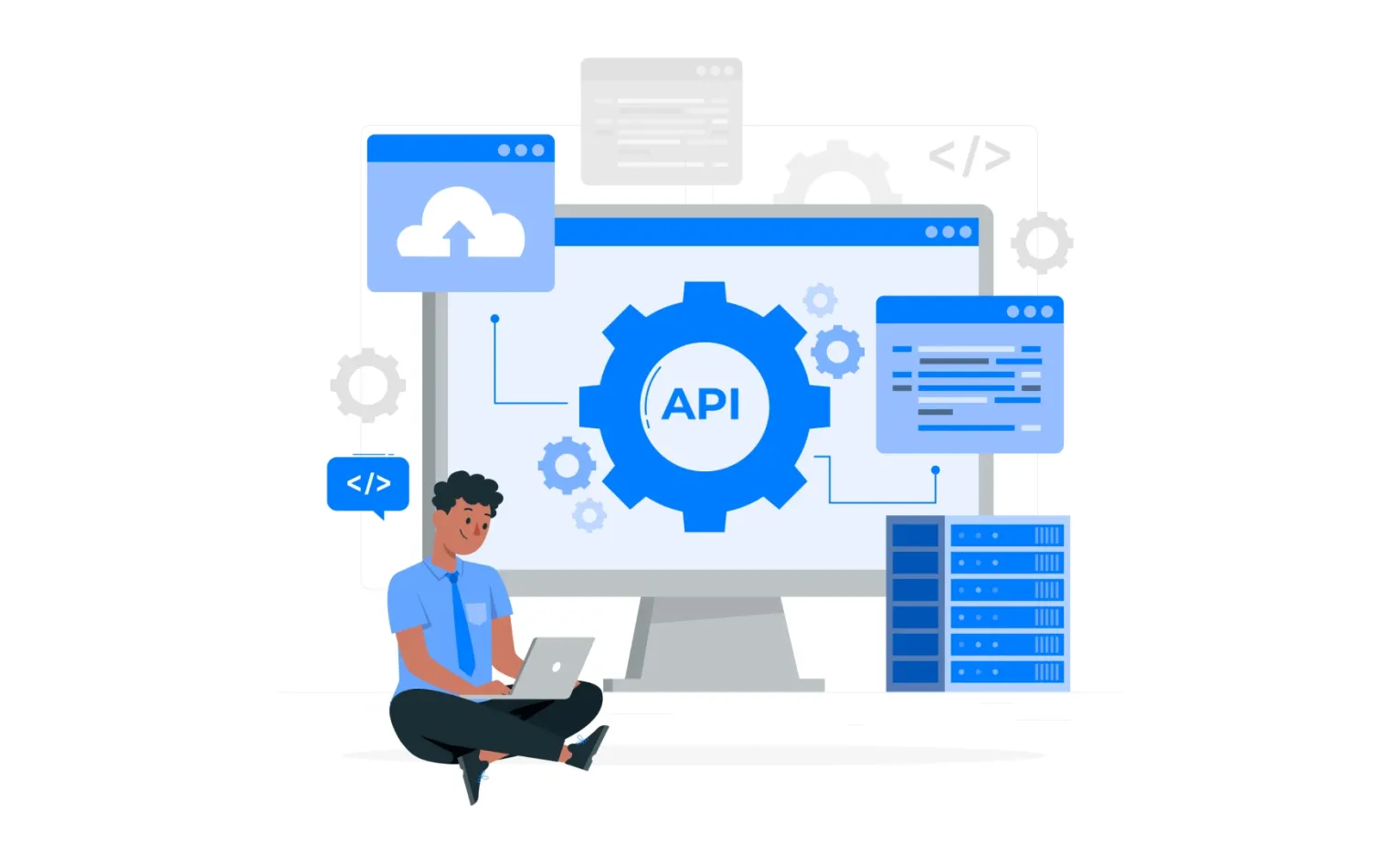
28-03-2023
What are the best WhatsApp Business API Providers? Find Out Now!

22-03-2023
How Stock broker companies use WhatsApp API to give insights into the portfolio to their ‘Customers’
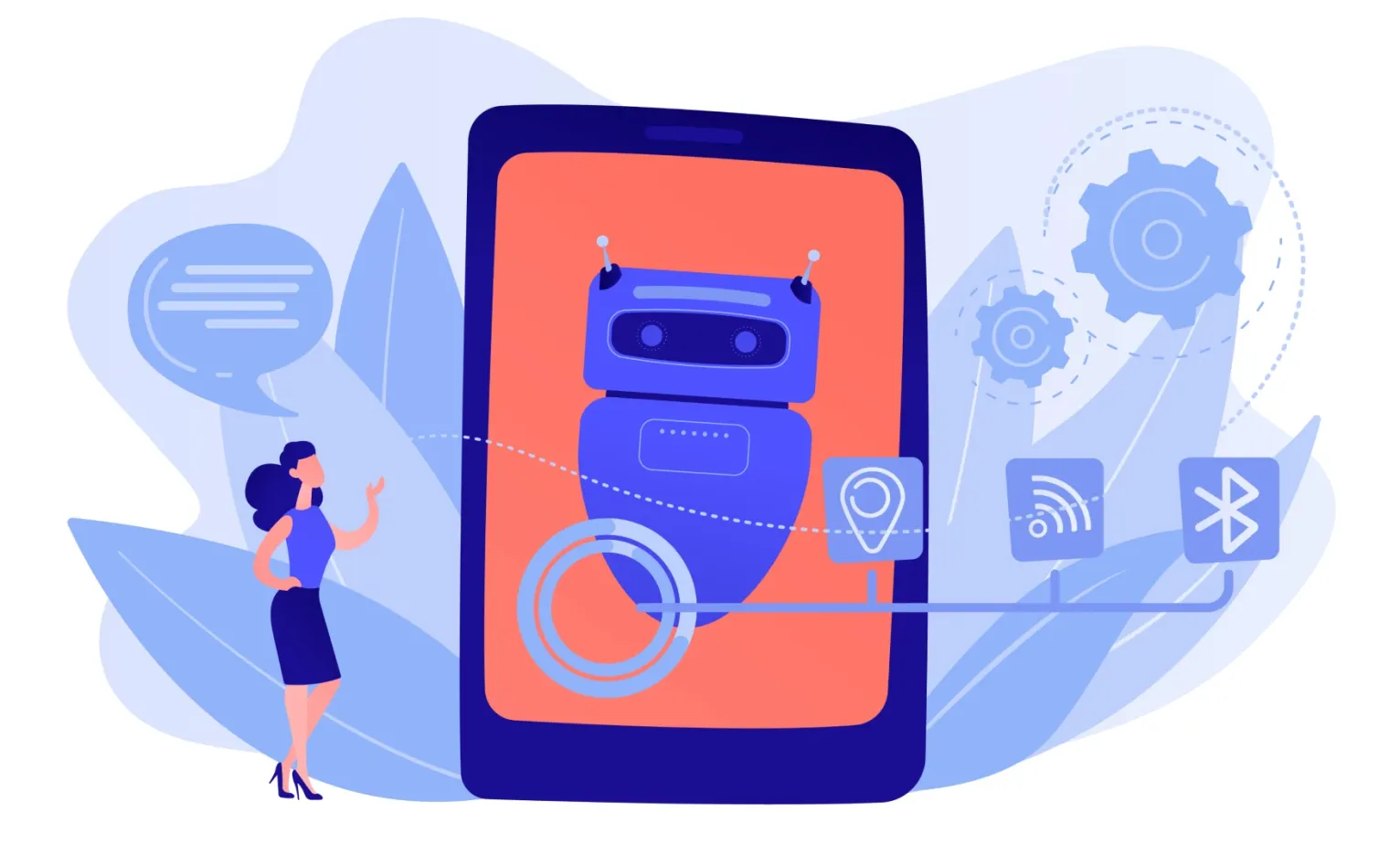
19-03-2023
Impact of Automation in WhatsApp API Across Industries: A Closer Look

13-03-2023
How can the manufacturing sector leverage automation in WhatsApp Business API to help achieve their business goals

10-03-2023
What Are the Benefits of Using WhatsApp Business API Human Chat for Handling Sensitive Data?

06-03-2023
Utilizing the Power of WhatsApp Automation for HR Processes

06-03-2023
Exploring the Benefits of Automation on WhatsApp Business API for the Healthcare Industry

03-03-2023






